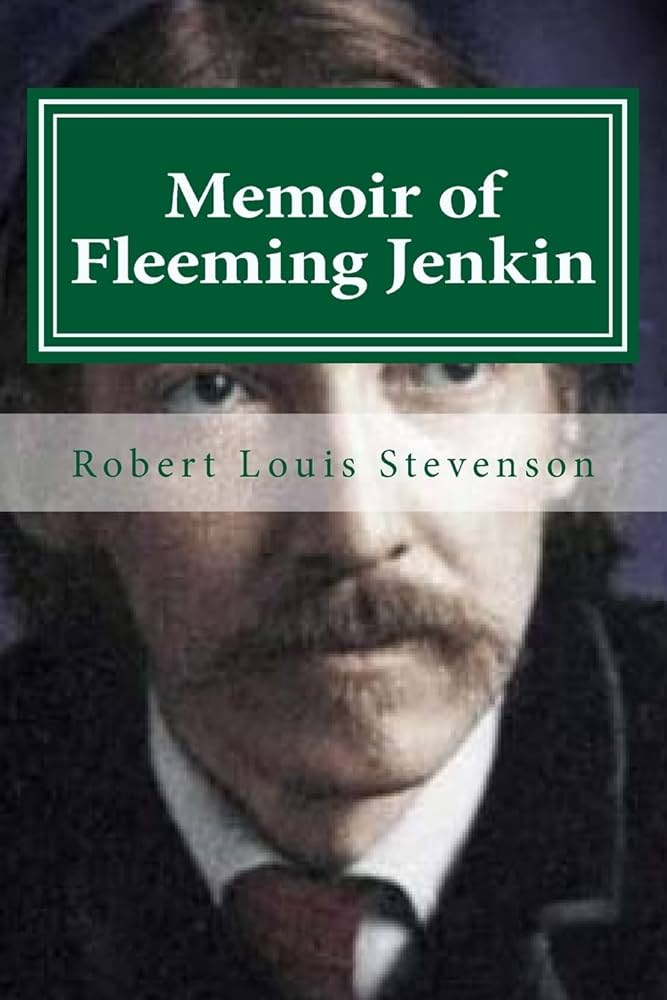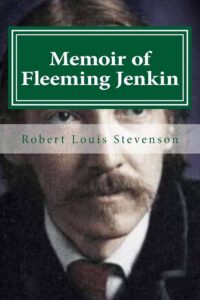Chapter II — Memoir of fleeming Jenkin
byChapter II — Memoir of Fleeming Jenkin begins by tracing the origins of Fleeming Jenkin’s character through a childhood marked by instability, reflection, and nurturing influences. Born in 1833 in a modest coastguard station in Kent, his early years were shaped by frequent moves and separations due to his parents’ obligations. These transitions placed him under the care of relatives, exposing him to contrasting environments—his grandmother’s hardship left a somber mark, while his Aunt Anna’s gentle spirit gave him warmth and stability. His early exposure to both emotional hardship and compassion instilled in him a sensitivity that would later inform his values and humanistic approach to engineering and education. Even in his youth, Fleeming demonstrated a thirst for learning and a resilience of character, absorbing lessons from every person and place he encountered. His curiosity found outlets in both academics and practical pursuits, establishing a foundation for the multifaceted man he would become.
As he grew, Fleeming’s education unfolded across multiple cultural landscapes, each enriching his perspective. His time in Edinburgh introduced him to rigorous academics and placed him among peers like Tait and Clerk Maxwell, where he began to distinguish himself in science and mathematics. Yet it wasn’t all classroom work—his participation in Scottish customs and his prowess in games revealed a spirited, well-rounded young man. These were not idle years but the incubators of a sharp, agile mind always asking questions and seeking connections between knowledge and life. Moving with his family to Frankfort and later to Paris, he encountered revolutionary fervor up close, and these vivid moments shaped his emerging political beliefs. The unrest in Europe in 1848 was more than background noise; it was a live experience that stirred his empathy and shaped his understanding of justice, liberty, and civic responsibility.
Italy became the crucible where Jenkin’s intellect and ideals fused into something enduring. As his family sought refuge in Genoa, the city’s energy, culture, and political tension left a lasting impression on him. His enrollment as the first Protestant student in the Genoa University highlighted both his courage and the progressive values instilled in him by his mother. Mrs. Jenkin, a woman of vivid character and radical convictions, played a crucial role in shaping Fleeming’s political thought, aesthetic sense, and personal ethics. She encouraged debate, nurtured his talents, and never shied away from guiding him through moral complexity. These years in Genoa were formative—not only academically, but also as a moment where he observed real societal upheaval and formed a lasting admiration for the Italian national cause. His support for Italian unification remained a thread throughout his life, often intertwined with his technical and literary endeavors.
The education Fleeming received in Italy extended far beyond textbooks. It was in these years that he developed an enduring love for the arts, sharpened his reasoning skills, and understood the role of science and engineering in serving public good. Whether in scientific studies, music appreciation, or political discourse, he applied the same intensity and focus. The volatile atmosphere of revolutionary Italy and the passionate, idealistic individuals he encountered fueled his conviction that technology must serve humanity, not merely industry. These ideas would later define his stance on public service, education reform, and the ethical obligations of engineers. Through adversity, he discovered not just resilience, but responsibility. His commitment to fairness, truth, and innovation—values echoed throughout his professional life—can be traced to these formative encounters.
This chapter is ultimately about shaping a man of purpose. Fleeming Jenkin’s early journey reveals how a boy, nurtured by intelligent parenting, tested by dislocation, and inspired by cultural richness, evolved into a thinker whose work would blend science with conscience. The events that formed him were complex, but they were never random—they built a worldview rooted in compassion, rigor, and progressive ideals. Each city and crisis added a layer, and each lesson helped craft a life of integrity. These formative years show that his later accomplishments were not isolated acts of brilliance, but the natural outcome of a life lived in pursuit of understanding, justice, and meaningful contribution.


